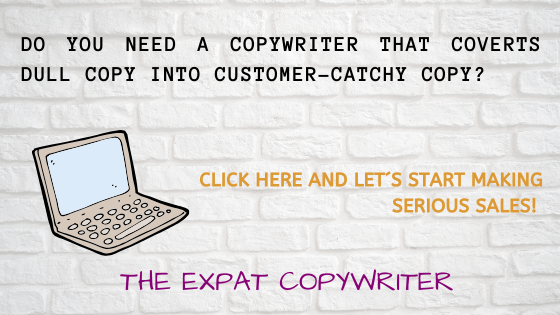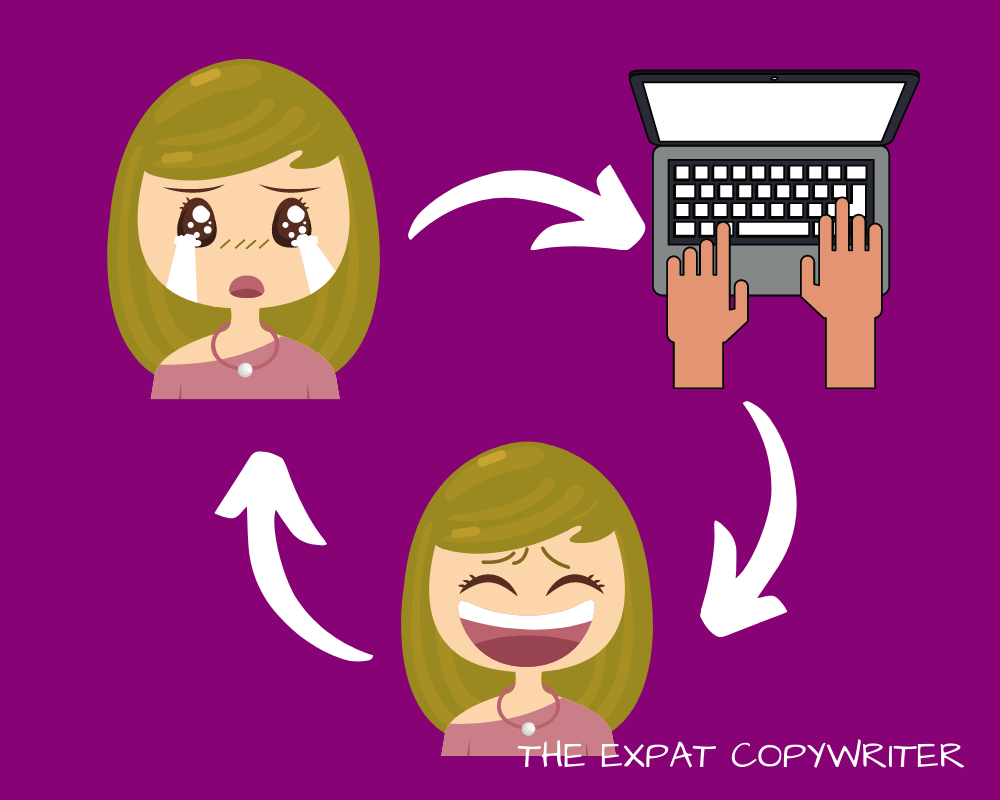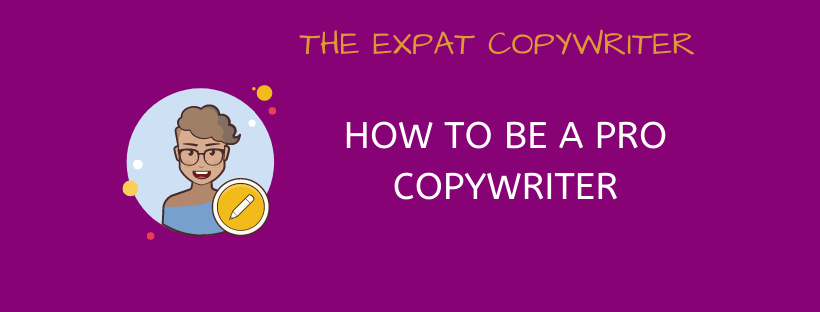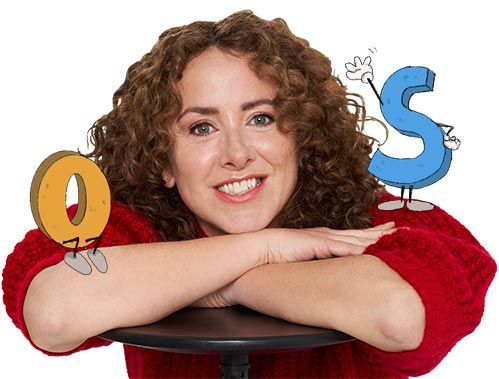What makes a great copywriter?
Knowing how to write very well?
Having a wide vocabulary?
Being a skilled salesperson?
Perhaps, but there’s much more.
Copywriters are in high demand due to the growing need of businesses to stand out on the internet.
There are many aspiring copywriters who wish to be mobile so to be able to work from anywhere.
But, can anyone be a copywriter?
Everyone can write, although not everyone can sell in writing.
The concept of a pro copywriter, like that of a designer or photographer, is currently a bit blurry.
Let me explain.
We all learn to write at school.
They teach us the alphabet and how to put letters together to form words.
But that doesn’t mean that we are all writers or, in this case, copywriters.
Just because you know how to write and a little bit about what copywriting is about doesn’t make you a copywriter instantly.
Instagram, for example, has made many people think of themselves as professional photographers.
But using filters doesn’t make us experienced photographers.
Nor does designing Instagram posts on Canva make us graphic designers.
Having followed a copywriting course for a few weeks doesn’t immediately make you a copywriter.
Writing effective direct response copy is not something you learn overnight.
This profession involves many, many hours of study and practice.
That’s why I’m sad to see so many aspiring copywriters who, after having paid a lot of money for a course, hope magic will happen and they’ll start working with lots of clients.
I’m sorry to disappoint you, but it’s not quite like that.
This takes a lot of time and a lot of hard work and, besides, you should never stop studying.
That said, if you still want to be a copywriter, a real one, keep reading.
There’s a lot of literature on the qualities best copywriters have in common.
Let’s see what they are.
If you lack any of them, don’t get depressed, by cultivating the habit you can build the quality.

Curiosity
A copywriter has to be curious by nature.
A real copywriter is interested in (almost) everything and it’s normal to see her reading about topics as diverse as the stock market or an essay on loneliness and its effects.
They are not afraid to ask questions because they always want to know more and try to contrast the information they find on a subject.
Since I started writing copy full-time many people have advised me to choose a niche.
I simply cannot.
Because I have too many interests to just choose one.
Not specialising has its pros and cons, like everything.
Cons
- When you have to work with a product or a service and you don’t know anything about it, you have to start from scratch
- Some businesses will prefer to hire a copywriter who specialises in their niche
- You aren’t an expert in any particular subject
Pros
- Not being an expert on the subject means you see everything with fresh eyes and are possibly more capable of finding that new angle that can make that product or service stand out from the competition
- Many experts become so closed to a topic that they no longer manage to generate new ideas by connecting others that were originally unconnected
- Your work is more diverse and you are used to working with very different businesses which in turn makes you grow as a person and professional
The basis of every sale is the same and the human emotions that lead to hitting the buy button are also the same, no matter if you are selling shoes or an insurance policy.
I see the point in specialising in a niche, surely you’ll work faster since you’re already familiarised with the subject, but as we’ve seen before, this also has its limitations.
So it’s up to you to choose whether or not you want to specialise.
It goes without saying that to know how to use language to write better copy, the real copywriter reads lots of books and doesn’t waste too much time on social media.
He uses it for his own purposes (research, keeping up with trending topics, marketing his business) but he doesn’t get hooked like a zombie.
I’m amazed when someone tells me that he wants to be a copywriter and hasn’t picked up a book in years.
Just as you can’t be a footballer if you don’t touch a ball, you can’t write if you don’t read.
And it isn’t enough to read only articles on the Internet.
True wisdom comes from books, no matter what the YouTube gurus say.
Good films also open up a world of possibilities for you.
Anything that helps you accumulate more knowledge, tell stories and learn how to approach people, is more than welcome.
Pragmatism
Aspiring copywriter, keep this in mind:
IT’S NEVER GOING TO BE PERFECT.
No matter how many hours (and days) you’ve spent researching a product or service.
It doesn’t matter how many drafts you’ve dismissed or how many times you’ve started over from 0.
You’ll never be completely satisfied with the final result.
If you aren’t a pragmatist by nature you have to learn to cultivate pragmatism.
You need to learn when it’s time to deliver a project that cannot be improved any further.
Because if not, you run the risk of your work becoming something like Gaudi’s Sagrada Familia.
When it’s time to send it, send it.
By this I don’t mean that you should hand in the first shitty draft you created.
NO.
You should work hard on it, but learn to release it when it’s done.
Experience will tell you when it’s ready. Also the deadline the client stated.
Or better, the deadline you set, because the sooner you finish a project, the sooner you can start the next one.
However, you must always feel that you have given your best in each project.
That you have really worked hard.
Perfectionism is one of the ways our inner critic try to paralyse us.
Remember that we are all our own worst critics. But there are ways to control it.
Recommended reading You and your inner critic. The best team
Connecting the unconnected
Copywriting is not so much about writing but about ideas.
Great copy uncovers hidden ideas that were there from the beginning but no one had seen them before.
Sometimes you sit down to study a product and think: “I don’t know what to say about this that hasn’t already been said. There are so many products like this one that it’s difficult to highlight something new”
Well, there’s always something.
The thing is, it can take days to figure out what.
And to do that you need to know how to connect ideas that at first sight had no connection whatsoever.
As Ben Hughes says:
“Copywriting is about ideas. Whether it’s a brilliantly clear way of explaining a complex subject, a fresh angle on a well-trodden story, an act of synthesis that weaves together seemingly unconnected strands into a sturdy argument, or quite simply, the truth.
Writing copy for a product or service doesn’t mean that we have to invent the wheel.
Many of the elements we need are already there but we haven’t seen them at first or second sight.
Getting to that Big Idea that is the basis of every good marketing strategy involves spending time looking for new connections.
Recommended reading The secret to selling more. The Big Idea
“A change of perspective is worth more than 80 points on an IQ test. Alan Kay

Knows how to sell herself
Knowing how to sell yourself will serve you for many things in this life.
Whether you work for yourself or for someone else, you have to know how to express your worth.
Sometimes it’s difficult to find that middle ground between an excess of modesty and an excess of arrogance, but it’s worth working on it.
The best way to show that you are a good copywriter is to do a great job. It’s as simple as that.
If you write effective copy, clients will be happy to recommend you and write powerful testimonials for you to publish on your website or social networks.
This is the best way to prove your worth without sounding arrogant.
Let your clients and your work speak for you.
But make sure they do.
Always ask clients for testimonials after they have worked with you.
Write case studies with projects that have been a real success.
Expose your achievements but don’t brag too much about it.
Resilience
Writing copy is a creative process and as such can be very painful.
Because you are exposed to criticism and disappointment.
You need to develop a shield of courage around yourself.
It’s important that you also learn from criticism, because only then can you grow as a professional.
But you can’t let them bring you down.
Just because you’ve made a mistake doesn’t mean you are mediocre.
It means that you weren’t aware you shouldn’t do that particular thing. Well, now you know it for next time.
Besides, all being said, as in all sorts of art, there are a myriad of tastes.
Your copy has to provide results, that’s what really matters, and if everybody thinks it’s brilliant then even better.
However, there will always be someone who doesn’t like it.
Although if it gives results, if your copy’s helped a brand to sell more, then you don’t have to win the Pulitzer Prize either.
I personally suffer a little bit from this. Because deep down I’m an artist and I’d like my copy to do both.
That it sells lots and that it’s a pleasure to read. It’s not always possible.
Sometimes the copy that at first sight seems plain and simple is the most effective, even if it has nothing artistic or original about it.
So put your efforts into making it work.
Some clients or mentors can be really hard when giving feedback.
So you need to be resilient and raise yourself again and again.
If you don’t believe in yourself, who the hell will?
No drama! Let’s get to work!

Critical, but not prejudiced
We are losing the ability to (really) listening.
Firstly because everyone is busy with their own thing and secondly because when someone tells us about their problems we tend to run away.
Much of this is a consequence of the excess of positivism and “take all the negativity away from your life” messages from some influencers.
As if life was a perpetual festival.
Forget all those empty phrases if you want to be a good copywriter (unless you’re writing copy for one of these influencers).
What I mean is that to be a good copywriter you need to listen.
And yes, especially the problems.
Because to sell most of the products and services you’ll need to masterly express how they solve an audience’s particular problem.
And if you don’t listen, how will you know what the problem is about?
The old saying among salespeople reads: “You have two ears and a mouth. Use them in that proportion”.
You need to be critical to know what is worthwhile and what you have to discard but you should try to listen, read and write without prejudices.
A few weeks ago I made a small contribution, with many other copywriters, to a guide on tips for writing better copy. It’s called “Wisdom of the Crowd“.
My contribution, which is relevant here, is the following:
“Writing copy is practising empathy. When you are writing, think of someone you know who resembles your target customer and write for him or her. Don’t judge. If you don’t like that person in real life, maybe this is your chance to understand their point of view. It’s great for your copy and for your soul.
Love your profession
At the end of all this is the most important thing.
If you don’t like to sell, if you don’t like to write, if you don’t like to read, if you don’t like to drill down in the human condition, if you don’t like advertising… You should do something else.
Because you are not going to have a good time.
I don’t know about you, but writing copy is the first job I’ve done in my life that I really like.
I’ve worked on a thousand things before becoming a full-time copywriter and I’ve never enjoyed it as much as I do now.
I did the other jobs because I needed money not to depend on anyone financially to be able to travel.
When I decided to go freelance, I didn’t know how it was going to go.
I had some savings, so I counted on a safety net to start with.
Because the first two years it’ll very difficult for you to earn enough to live on this alone.
The third year, if you work hard, you might finally be able to pay your bills exclusively with the work you do as a copywriter.
That’s if you don’t throw away your fees and charge a pittance. It’s up to you.
Of course you can’t start charging like a professional when you’re not yet one, but you must be honest about it.
Explain why you charge less.
In the end it’s in the interest of all us copywriters than this profession is well paid.
Therefore I make an appeal here.
If you are determined to be a TRUE copywriter, start working hard.
Study as much as you can, read the best copywriters in history, find a mentor or fellow copywriter who is on your same level and give feedback to each other.
Learn from your mistakes and get back on your feet.
Charge what you think is fair for the time (a lot) you will have to invest in each project.
Be honest with the experience you have and the prices you charge.
Welcome to this world of madness.



0 Comments